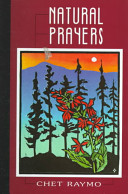The Zodiacal Light
The zodiacal light is caused by sunlight reflecting from meteoric dust that orbits the sun in the plane of the solar system, remnants of the vast nebula of dust and gas out of which the solar system was born more than four billion years ago. Like the planets, this diffuse stream of particles reflects light, although faintly and rarely seen. Moonless nights of winter are the best time to see the zodiacal light. and nowhere better than here, on the Tropic of Cancer, where the plane of the solar system is tipped so as to pass directly through our zenith, lifting the band of faint light up and away from the horizon. And so we were treated to the spectacle of two intersecting rivers of lights, the light of two great whirling disks, the solar system and the galaxy. The solar system is tipped on its side within the greater disk of the galaxy, so the two rivers of light intersect more or less at right angles. The axis of the Earth is tipped within the solar system, and our bodies were tipped with respect to the axis of the Earth. We struggled to orient ourselves to these many cockeyed angles. In the twenty minutes we stood gaping at the light-streaked sky, our spinning planet carried us 350 miles to the east. The flight of the Earth around the sun whirled us 22,000 miles through the space of the solar system. The turning galaxy bore us 200,000 miles through the cosmic abyss. We felt like the prophet Ezekiel, who saw in the heavens intersecting wheels turning upon wheels, sparkling like chrysolite. It was enough to cause vertigo.
Notes:
Chet Raymo describes seeing the light of our planetary disk of our solar system intersecting the light of the milky way galaxy.
Folksonomies: wonder astronomy
Taxonomies:
/health and fitness/disease/deafness (0.536500)
/science/mathematics/geometry (0.520189)
/sports/skateboarding (0.436980)
Keywords:
Zodiacal Light Chet (0.965923 (negative:-0.262943)), milky way galaxy (0.873110 (negative:-0.262943)), great whirling disks (0.732218 (positive:0.218057)), zodiacal light. (0.584197 (negative:-0.291940)), meteoric dust (0.519265 (neutral:0.000000)), vast nebula (0.493532 (neutral:0.000000)), Moonless nights (0.486590 (negative:-0.291940)), planetary disk (0.480752 (negative:-0.262943)), diffuse stream (0.467595 (negative:-0.253661)), faint light (0.460357 (negative:-0.388952)), right angles (0.453783 (neutral:0.000000)), best time (0.442234 (negative:-0.291940)), prophet Ezekiel (0.435201 (neutral:0.000000)), greater disk (0.426873 (positive:0.205548)), cosmic abyss (0.420819 (negative:-0.703856)), light-streaked sky (0.411962 (negative:-0.544199)), spinning planet (0.411531 (negative:-0.295417)), Earth (0.263465 (negative:-0.220862)), miles (0.261875 (negative:-0.517819)), rivers (0.233069 (neutral:0.000000)), axis (0.231027 (positive:0.333322)), sun (0.225406 (negative:-0.554184)), Raymo (0.215834 (negative:-0.262943)), wheels (0.212411 (neutral:0.000000))
Entities:
solar system:FieldTerminology (0.917897 (negative:-0.203860)), Chet Raymo:Person (0.254416 (negative:-0.262943)), milky way:FieldTerminology (0.197035 (negative:-0.262943)), Tropic of Cancer:JobTitle (0.195217 (negative:-0.468973)), Ezekiel:Person (0.187547 (neutral:0.000000)), four billion years:Quantity (0.187547 (neutral:0.000000)), twenty minutes:Quantity (0.187547 (neutral:0.000000)), 200,000 miles:Quantity (0.187547 (neutral:0.000000)), 22,000 miles:Quantity (0.187547 (neutral:0.000000)), 350 miles:Quantity (0.187547 (neutral:0.000000))
Concepts:
Solar System (0.972483): dbpedia | freebase | opencyc
Sun (0.964900): dbpedia | freebase | opencyc
Planet (0.821090): dbpedia | freebase | opencyc
Milky Way (0.818288): dbpedia | freebase | opencyc | yago
Earth (0.647568): dbpedia | freebase
Galaxy (0.573498): dbpedia | freebase | opencyc
Moon (0.491369): dbpedia | freebase
Interstellar medium (0.474627): dbpedia | freebase





